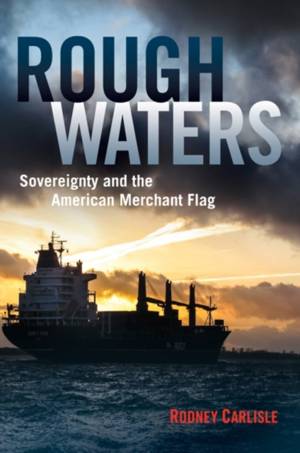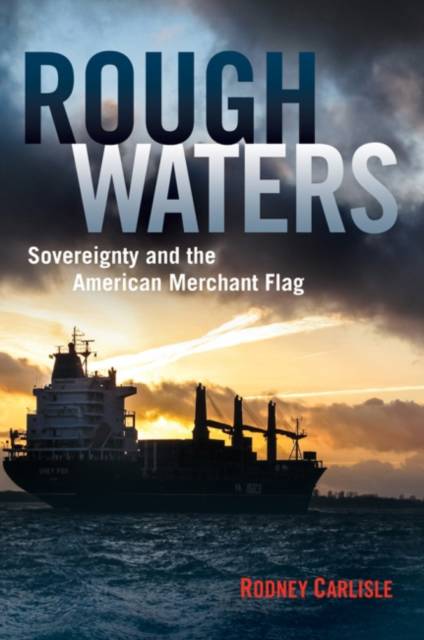
Bedankt voor het vertrouwen het afgelopen jaar! Om jou te bedanken bieden we GRATIS verzending (in België) aan op alles gedurende de hele maand januari.
- Afhalen na 1 uur in een winkel met voorraad
- In januari gratis thuislevering in België
- Ruim aanbod met 7 miljoen producten
Bedankt voor het vertrouwen het afgelopen jaar! Om jou te bedanken bieden we GRATIS verzending (in België) aan op alles gedurende de hele maand januari.
- Afhalen na 1 uur in een winkel met voorraad
- In januari gratis thuislevering in België
- Ruim aanbod met 7 miljoen producten
Zoeken
Omschrijving
Rough Waters traces the evolution of the role of the U.S. merchant ship flag, and the U.S. merchant fleet itself. Rodney Carlisle looks at conduct and commerce at sea from the earliest days of the country, when battles at sea were fought over honor and the flag, to the current American-owned merchant fleet sailing under flags of convenience via foreign registries. Carlisle examines the world-wide use, legality, and continued acceptance of this practice, as well as measures to off-set its ill effects. Looking at the interwar period of 1919-1939, Carlisle examines how the practice of foreign registry of American-owned vessels began on a large scale, led by Standard Oil with tankers under the flag of the Free City of Danzig and followed by Panama. The work spells out how the United States helped further the practice of registry in Panama and Liberia after World War II. Rough Waters concludes with a look at how the practice of foreign registry shapes present-day commerce and labor relations.
Specificaties
Betrokkenen
- Auteur(s):
- Uitgeverij:
Inhoud
- Aantal bladzijden:
- 304
- Taal:
- Engels
- Reeks:
Eigenschappen
- Productcode (EAN):
- 9781682470091
- Verschijningsdatum:
- 15/01/2017
- Uitvoering:
- Hardcover
- Formaat:
- Genaaid
- Afmetingen:
- 155 mm x 241 mm
- Gewicht:
- 657 g

Alleen bij Standaard Boekhandel
+ 77 punten op je klantenkaart van Standaard Boekhandel
Beoordelingen
We publiceren alleen reviews die voldoen aan de voorwaarden voor reviews. Bekijk onze voorwaarden voor reviews.









